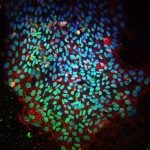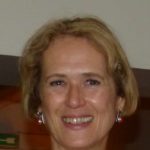Link to Pubmed [PMID] – 29523336
Link to DOI – S0027-5107(17)30143-410.1016/j.mrfmmm.2018.01.005
Mutat Res 2018 03; 808(): 93-102
Mitochondrial DNA (mtDNA), which is essential for mitochondrial and cell function, is replicated and transcribed in the organelle by proteins that are entirely coded in the nucleus. Replication of mtDNA is challenged not only by threats related to the replication machinery and orchestration of DNA synthesis, but also by factors linked to the peculiarity of this genome. Indeed the architecture, organization, copy number, and location of mtDNA, which are markedly distinct from the nuclear genome, require ad hoc and complex regulation to ensure coordinated replication. As a consequence sub-optimal mtDNA replication, which results from compromised regulation of these factors, is generally associated with mitochondrial dysfunction and disease. Mitochondrial DNA replication should be considered in the context of the organelle and the whole cell, and not just a single genome or a single replication event. Major threats to mtDNA replication are linked to its dependence on both mitochondrial and nuclear factors, which require exquisite coordination of these crucial subcellular compartments. Moreover, regulation of replication events deals with a dynamic population of multiple mtDNA molecules rather than with a fixed number of genome copies, as it is the case for nuclear DNA. Importantly, the mechanistic aspects of mtDNA replication are still debated. We describe here major challenges for human mtDNA replication, the mechanistic aspects of the process that are to a large extent original, and their consequences on disease.

